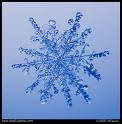The vast majority of humans are what I refer to as Sleepwalkers, average Joes/Janes who wander through life thinking that life is something that happens to them and not because of them. They are constantly choosing and creating both their reality and themselves, but they do it all without actually knowing it. To them, the world is a scary, unpredictable place, a place of hardship, random chance, and capricious Fate.
Part of the reason that Reality seems so unpredictable to them is because they have not yet learned how to live consciously, to wake themselves up and really pay attention to themselves and to their world, thus my term Sleepwalkers. Until they learn to live consciously, their world really is unpredictable, because without conscious living they cannot bring their 3 creative tools, Thought, Word, and Deed, into alignment with each other.
It all begins with Thought. The entire universe is one huge field (called the Zero Point Field by quantum physicists) of electromagnetic energy, and that which we call "matter" is really just highly complex EM waveforms, so complex and tightly packed that they appear, to our limited senses, to be objects instead of energy.
Our thoughts are EM waves as well, just not as tightly packed and complex. Our thoughts radiate out of us and interact with everything, not only what's immediately around us, but echoing off into Infinity, shifting the ZPF faster than the speed of light. Quantum physicists have observed what is called the Heisenberg Uncertainty Principal, that the act of observing a quantum object actually affects the object, and in some cases actually brings it into being. This is simply the waves of our thoughts interacting with objects, and this is most easily observed in subatomic particles for the same reason that a splashing hand can knock over a toy boat but not a battleship.
Words and Deeds are simply manifestations of our Thoughts. Words are Thoughts expressed, pushed out of us, transformed into other types of waveforms, either sound as spoken words, or placed upon solid objects so that they stay and may be observed by many people at many moments as writing. Words are more powerful than Thoughts, but less precise. While thoughts are experienced, words must be interpreted, and this interpretation changes the words, sometimes slightly, sometimes drastically, as we've all experienced in out lives.
Deeds are the heaviest creative tool. They are Thoughts in motion, actually shifting physical matter around. Deeds are the most powerful creative tool we have, but can be the most imprecise and even damaging. Everyone has had moments where they've lost their temper, lost control of their Deeds, and done things they've regretted later. Unlike Thoughts, which can always be changed, or Words, which can be re-expressed or modified, Deeds are moments, done and then gone. If your Deeds go astray, any resulting damage can be fixed, but never undone.
Now, the difference between Sleepwalkers and the Awakened is a matter of focus (pun intended:D ). Sleepwalkers have just as much creative power as anyone, but because they go through the majority of their lives not really paying attention, their creative power is scattered, intermittent, unfocused. Their belief in their powerlessness is a Thought like any other, it echoes out of them and creates their reality. Their worries, their fears, their insecurities, they create these things as much as they experience them. They are stuck in a feedback loop, thoughts affecting experience affecting thought affecting experience. Their Words and Deeds are similarly scattered and affected.
Every once in a while everything might come into alignment and a Sleepwalker might bring something intended, perhaps even something extraordinary, into their reality, but usually they are so convinced of their own powerlessness that they attribute their good fortune to either luck or the intervention of some outside force or Deity. Some rare ones even become so convinced of the reality of their chosen God that they may do great works, or even perform miracles, all the while believing that it something outside of them working through them. They have indeed brought Thought, Word, and Deed into alignment, but under a false assumption that they are powerless in and of themselves. This does not lessen their power, only limits the scope of it.
A few, a rare, rare few, have Awoken completely to the truth of this reality. They understand that this energy field which we inhabit, the ZPF, is merely One Thought, One Word, One Deed which they are part of, a manifestation of, and the controller of. They are a fractal of this Oneness, a part of the pattern yet the pattern entire and also containing the pattern within them.
This is the ideal to which we strive. None of us have gotten there yet, but we see the path to it.
